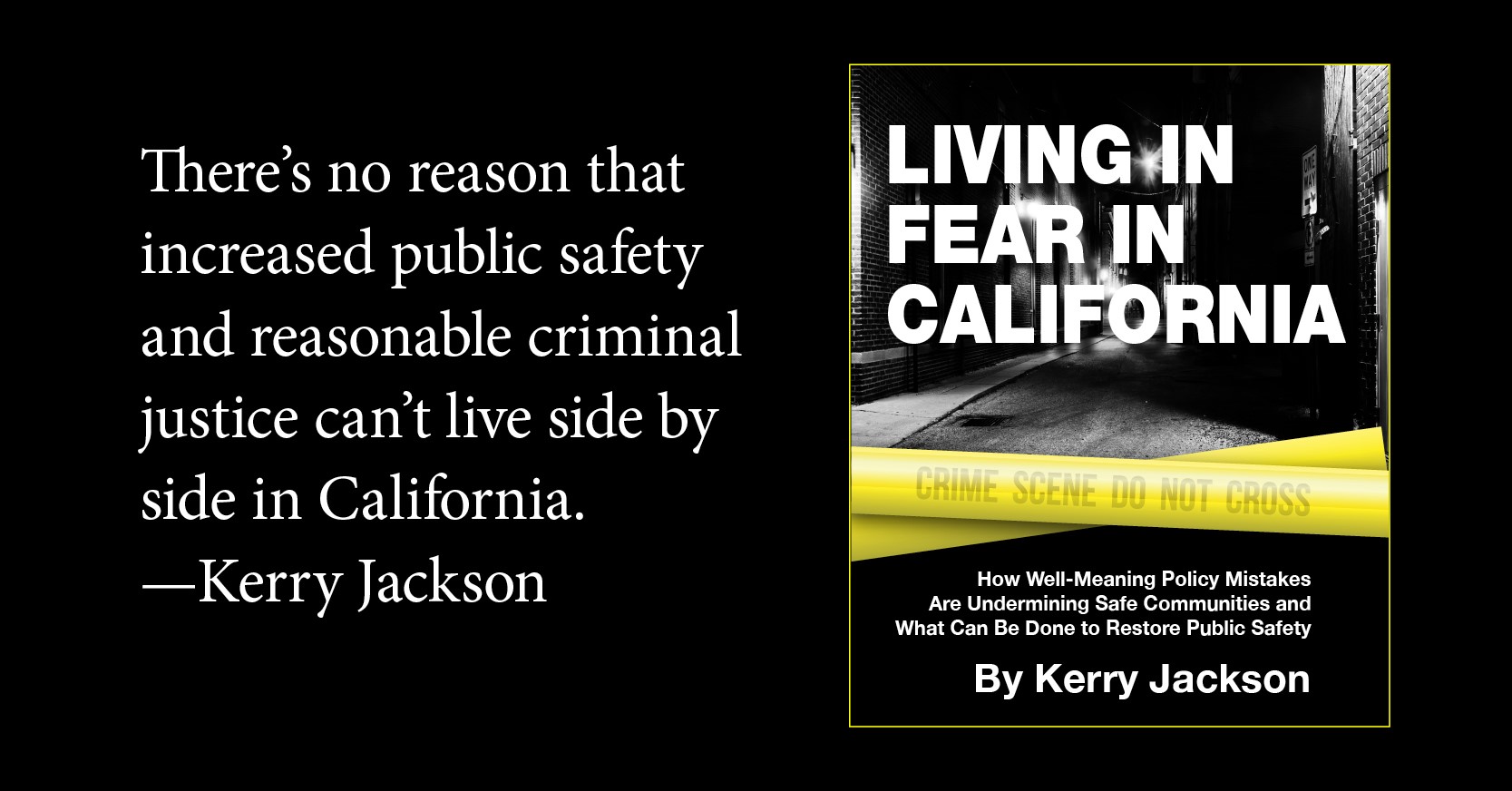California seems to have become a plunderers’ paradise. Thieves have moved on from shoplifting with large garbage bags at drug stores to violent smash-and-run raids on retailers, some of them during the middle of the day. Neiman-Marcus, Nordstrom, Saks Fifth Avenue, Louis Vuitton, and other stores from San Francisco to Walnut Creek to San Jose, Los Angeles, and Beverly Hills have been robbed by hammer- and crowbar-wielding mobs that have left a few fallen store employees in their wake.
The bandits, says Gov. Gavin Newsom, are “creating havoc, terror in the streets.” His own business in San Francisco has been broken into three times.
“I have no empathy, no sympathy for these folks, and they must be held to account.”
So what’s behind the wave of out-in-the-open thievery that’s so heinous it has the governor exercised?
The explanation might not be that complicated.
“The minute you say, ‘We’re going to tolerate some level of crime,’ you send a signal to criminals to test the system. The more success they have, the more emboldened they become,” Los Angeles developer and potential mayoral candidate Rick Caruso told the Los Angeles Times.
Nearly 50 years ago, late economist Gary S. Becker published Crime and Punishment: An Economic Approach, which, according to the Nobel committee that awarded him in 1992 the prize for economics, “extended the domain of economic theory to aspects of human behavior which had previously been dealt with – if at all – by other social science disciplines such as sociology, demography and criminology.”
In Becker’s words: “The anticipation of conviction and punishment reduces the loss from offenses and thus increases social welfare by discouraging some offenders.”
Or, in the plain language of economist Pierre Lemieux, Becker found that “criminals are rational in the sense that they respond to incentives.
What might those incentives be in California to incentivize property crimes?
We could start with the obvious – Proposition 47, passed by voters by a 60-40 margin in 2014.
It allows thieves to steal as much as $950 worth of goods without being charged for a felony, wiping away the disincentive of being charged with a more serious crime. In many cases what was once a felony is now a wrist-slapping offense. Why not take advantage of the laxity?
Prop. 47 proponents deny that it has encouraged the raids we’re seeing, and point to a couple of studies to back their claims. But the Public Policy Institute of California says there is evidence to the contrary, while another study found “a rise in reported reclassified crimes that coincides with passage of Prop. 47” in Santa Monica. Law enforcement agencies saw the increases coming years ago, when officers became frustrated with what they saw as a “catch and release” program.
While Prop. 47 can explain the shoplifting sprees we’ve seen, in which some outlaws have been seen totaling up their takes on calculators to be sure they don’t exceed the $950 maximum, it can’t account for the widespread theft of luxury goods. For that, we should look at the prosecutors who’ve shirked their duties.
San Francisco District Attorney Chesa Boudin, for instance, is no law-and-order prosecutor feared by criminals but a politician with an agenda. Though he recently charged at least nine suspects with stealing from retailers, his concern arrived a bit late. Boudin was clear about his intentions when running for the job, and then after winning the election. Some crimes were simply going to go unprosecuted under his watch because his goal was to put fewer offenders behind bars.
Then there’s Los Angeles District Attorney George Gascón, who had been San Francisco’s prosecutor and police chief, and before that a Los Angeles police officer. He was a vocal supporter of Prop. 47, has taken well-deserved flak from critics who say he’s soft on crime, and said himself he is not the same man he was four decades earlier when he first put on the uniform and walked a beat.
Gascón has not only told his prosecutors to stop seeking cash bail, he has also renounced the death penalty, won’t ask for life-without-parole sentences, and refused to prosecute suspects younger than 18 as adults.
“And in a rare, if not unprecedented, move by an American prosecutor, Gascón declared his intent to effectively end very long sentences — in pending cases as well as new ones — for some of the most serious crimes, including murder,” said the New York Times in a recent story asking if Gascón has gone too far in remaking criminal justice in Los Angeles.
Now shoplifting and smash-and-grab are not nearly as serious as murder. But California’s desperadoes got the message: If Gascón is going to go easier on the most vicious felons, then common larcenists were going to get a break, too, and can now operate with uncommon latitude.
Newsom has kicked off a get-tough campaign, directing the California Highway Patrol “to increase their presence near major retail sites.” But the prospect of getting caught doesn’t seem to bother the gangs because the punishment isn’t harsh enough to affect their decision-making. Until the penalties fit the crimes, and prosecutors do their jobs, it’s unlikely the criminal class will change its behavior.
Kerry Jackson is a fellow with the Center for California Reform at the Pacific Research Institute.

